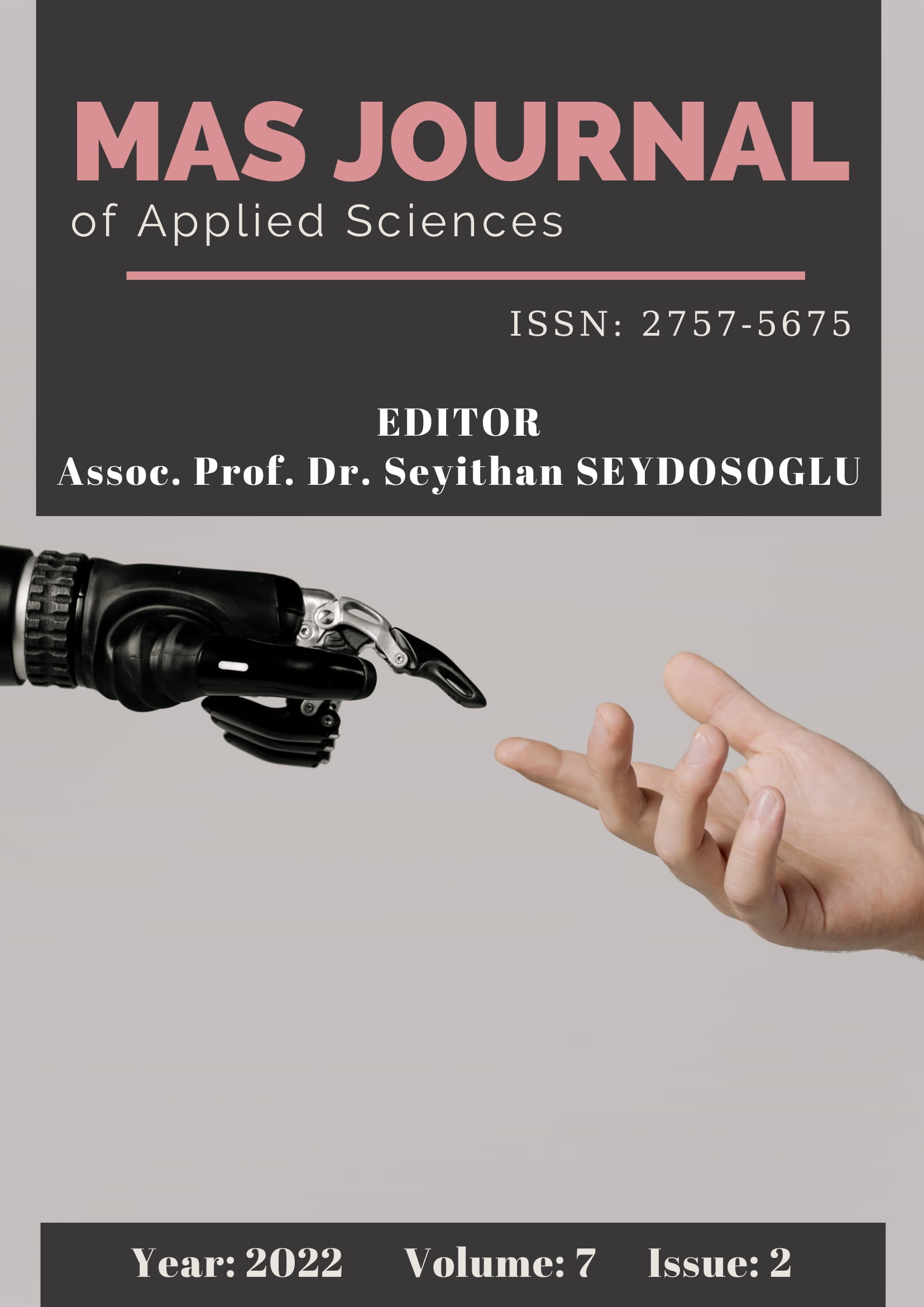The Weaponization of Artificial Intelligence in the Military: The Importance of Meaningful Human Control
DOI:
https://doi.org/10.52520/masjaps.v7i2id187Keywords:
Artificial intelligence, autonomous weapons systems, meaningful human controlAbstract
Artificial Intelligence has become an essential part of our lives. It has without a doubt made life much easier and practical whether on a global scale such as economical and political development or on a smaller scale such as our day-to-day lives. The last half-decade marked the beginning of the development of robots that have the ability to perform human tasks. Originally, it was expected that the main disadvantage of AI technology would be related to the loss of work prospects since humans would be replaced by machines that are able to operate in a more efficient matter. While this concern is certainly valid, there is a far more severe issue at hand which is none other than the military's use of AI. Governments, journalists, and tech leaders argue that developing and using intelligent and autonomous weaponry is unquestionably a fatal mistake that might lead to catastrophic consequences; it is particularly problematic if these technologies end up in the hands of the wrong individuals. These experts and scholars argued that these weapons could eventually lead to more damage and destruction and could possibly result in a third world war. Thus, they attempted to explore the moral and, most significantly, legal ramifications of these autonomous weapons. As a result, a new formula had to be introduced; this formula is Meaningful Human Control. In fact, the ultimate goal is to make Meaningful Human Control a legal requirement under International Law in order to allow it to serve as a potential solution for a number of moral and legal challenges that these fully autonomous weapons raise. This paper seeks to understand and elaborate on the benefits and the challenges that come with the integration of meaningful human control in the use of autonomous weapons systems.
References
Anyoha, R. 2017. The History of Artificial Intelligence. Harvard University: The Graduate School of Arts and Sciences.
BBC News. 2014. Future Tech? Autonomous Killer Robots Are Already Here. BBC News .
Congressional Research Service. 2021. International Discussions Concerning Lethal Autonomous Weapon Systems. In Focus.
Copeland, B. 2021. Artificial Intelligence. Britannica.
D'Monte, L. 2014. Should Robots Kill Without Human Supervision? Mint .
Frank Slijper, A.B. 2019. State of AI: Artificial Intelligence, the Military and Increasingly Autonomous Weapons. PAX .
Frantzman, S.J. 2020. Israel's Use of Artificial Inteligence Will Change the Future of War. The National Interest .
Garcia, E. 2019. The Militarization of Artificial Intelligence:A Wake-Up Call for the Global South. Research Gate.
Gatopoulos, A. 2021. Project Force: AI and the military- a friend or foe? Aljazzera.
Human Rights Watch. 2016. Killer robots and the concept of meaningful human control. Human Rights Watch.
IAI. 2015. Harpy, Autonomous Weapon for All Weather. Israel Aerospace Industries, 1.
IBM Cloud Education. 2020, June 3). Artificial Intelligence (AI). IBM .
Johnson, J. 2019. Artificial Intelligence & Future Warfare: Implications for International Security.
Joshi, N. 2021. Pros and Cons of Killer Robots. BBN Times .
Laird, B. 2020. The Risks of Autonomous Weapons Systems for Crisis Stability and Conflict Escalation in the Future U.S.-Russia Confrontations. Rand Corperation: Objective Analysis. Effective Solutions.
Lee, F.K. 2021. The Third Revolution in Warfare: First there was gunpowder. Then nuclear weapons. Next: artificially intelligent weapons. The Atlantic.
Maxwell, P. 2020. Artificial Intelligence Is The Future Of Warefare (Just Not In The Way You Think). Modern War Institute At West Point.
Melanie Sisson, J.S. 2020. The Militarization of Artificial Intelligence. Stanly Center, For Peace And Security.
Michael C. Horowitz, G.C. 2018. Artificial Intelligence and International Security. Washington, DC: Bold. Innovativ. Bipartisan.
O'Hanlon, M.E. 2018. The Role of AI in Future Warfare. Brookings.
Pandya, J. 2019. The Weaponization of Artificial Intelligence. Forbes
Roe, D. 2020. A Look at the Downsides of Artificial Intelligence . Reworked.
Scharre, M.C. 2015. Meaningful Human Control in Weapon Systems: A Primer. Center for a New American Security , 5-15.
Schwarz, E. 2018. The (im)possibility of meaningful human control for lethal autonomous weapon systems. Humanitarian Law & Policy .
See, H. 2015. Meeting of experts on lethal autonomous weapons systems. CCW, 4.
Tamburrini, D.A. 2019. What Makes Human Control Over Weapons Systems "Meaningful"? ICRAC: International Committee for Robot Arm Control, Report to the CCW GGE , 1-14.
Vynck, G. D. 2021. The U.S. says humans will always be in control of AI weapons. But the age of autonomous war is already here. The Washington Post .
Wheeler, B. 2017. Terrorists "Certain" to Get Killer Robots, says Defence Giant. . Bbc News .
Zafonte, A. (2018). Weaponized Artificial Intelligence & Stagnation In The Ccw: A North-South Divide. E-International Relations , 1-7.
Downloads
Published
How to Cite
Issue
Section
License
Copyright (c) 2022 The copyright of the published article belongs to its author.

This work is licensed under a Creative Commons Attribution-NonCommercial 4.0 International License.


